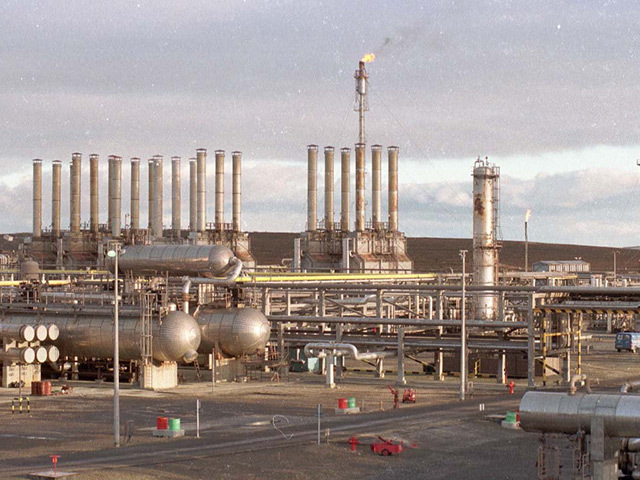
A ceremony will be held in Orkney today to mark four decades of service for the Flotta oil terminal.
Senior management from operator Repsol Sinopec Resources UK (RSRUK), Alistair Carmichael, MP for Orkney and Shetland, and local councillors are due to visit Flotta, where a plaque will be unveiled to mark the occasion.
The terminal’s story began in 1973 when Occidental North Sea Group picked the site as landfall for its newly discovered Piper oil field, 125 miles east of Caithness.
Flotta, an island on the edge of Scapa Flow, was selected ahead of seven other possible locations and became the terminal’s home.
The facility, which covers about one sixth of the island, was inaugurated in 1977 and was expected to operate for about 15 years.
Forty years later, the terminal is still processing North Sea oil, handling 100,000 barrels per day on average.
The terminal changed hands a number of times. In 1991, Occidental Group sold it to Elf Aquitaine, who operated it until 2000.
It was then bought by Talisman Energy, now RSRUK.
It currently employs about 280 people, 75% of whom are Orkney residents.
Over the course of its lifespan, Flotta has maintained an impressive safety record.
There have been no fatalities, major accidents, or reported leaks in its history. It is currently expected to remain in service until around 2030.
Flotta has been fed with oil from several fields operated by RSRUK, including Claymore, Scapa, Piper, Tweedsmuir, Tartan, Highlander, Duart, Petronella, and Galley.
The terminal has exported more than 2.6billion barrels of crude to date.
Peak production was reached in late 1978, when the terminal processed more than 420,000 barrels.
In 1979, Flotta welcomed 226 tankers to the terminal, the largest number it has received in a year. Thirty-three have visited Flotta so far this year.
The terminal received a new lease of life when it started processing reserves from the Nexen-operated Golden Eagle field in 2014.
Output from Golden Eagle doubled the volumes shipped through the terminal.
